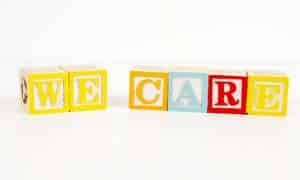The Rules on Changing Your Name in Islam
A name is an important symbol that distinguishes one person from another. It is therefore natural that everyone wants a good and honorable name. It is reported in a hadith that the Prophet peace be upon him said, “On the Day of Judgement you will be called by your names and the names of your fathers, so have good names” (Abu Dawud). Often times converts change their names to Arabic names thinking it is necessary to do so. However, is changing the name an obligation? Changing one’s name was rare in the time of the Prophet peace be upon him and very few Companions who accepted Islam changed their names. It is permissible, but not an obligation, to change one’s name without any reason. The general rule is that one does not have to change their name, but there are some exceptions to this.
When Should One Change Their Name?
Names should generally be changed in two cases:
1) When it Has a Meaning That Conflicts With Islamic Teachings.
For instance, someone who is named ʿAbd al-Masīḥ (Slave of the Messiah), or ʿAbd al-Nabī (Slave of the Prophet). If someone has a name that is to a religion other than Islam it should be changed. Names such as Christian, or Shenouda (which means “the son of God” and a common name among Coptic Christians). Additionally, a name should be changed if it has an attribute that belongs only to Allah such as the name Allah, or Rahman, or King of Kings. These names and attributes are only for Allah and should be changed.
2) If the Name Has an Evil or Bad Meaning.
Most cases where the Prophet peace be upon him asked Companions to change their names belonged to this category. Some companions had names like Ḥarb (war) and the Prophet changed it to Silm (peace). If someone was named Ḥuzun (sadness) their name should be changed to Saʿīd (happy). ʿUmar had a daughter whose name was ʿAṣīyah which means disobedient (this name should not to be confused with Āsīyah the name of Pharaoh’s wife). The Prophet peace and blessings be upon him changed her name to Jamila which means beautiful (Abu Dawud).
If a name does not contradict Islamic teachings or have a bad meaning, it is not an obligation or even recommended to change it. This does not mean it is prohibited to change the name. If one chooses to change their name for no reason, it is permissible, but not an obligation.
What About Family Names?
The Prophet peace be upon him said: “Whoever calls himself by other than his father’s name, will be cursed by Allah, the angels and all the people” (Ibn Mājah). The Prophet peace be upon him also said: “Allah has cursed the one who claims to belong to someone other than his father” (Ahmad). The Messenger of Allah peace be upon him also said: “Whoever claims knowingly to belong to someone other than his father will be denied Paradise” (Bukhārī & Muslim).
These narrations indicate that it is essential that one attributes his or her lineage to his or her biological father. Although one is allowed to change their first name, they are not allowed to hide or change their lineage.


